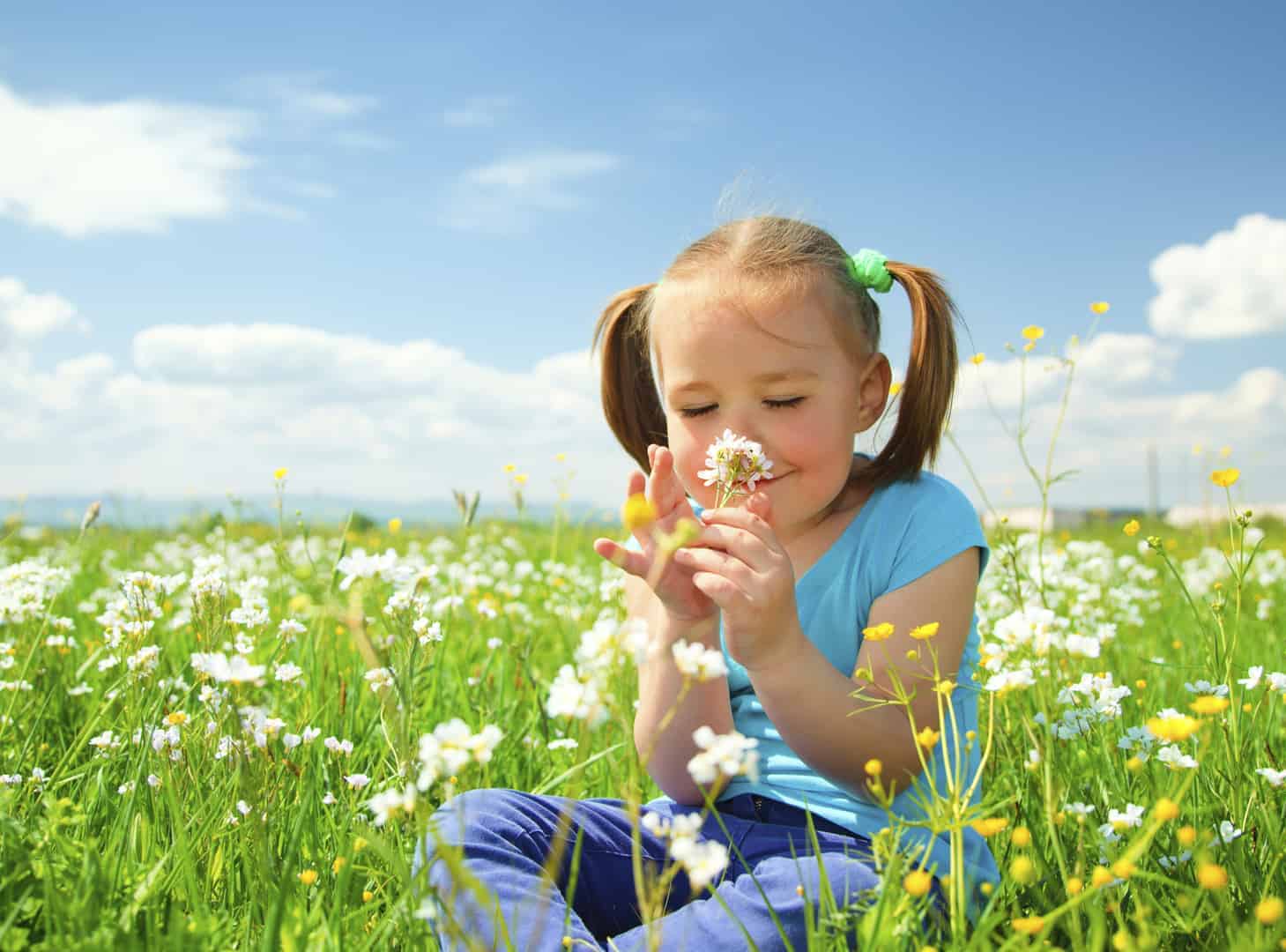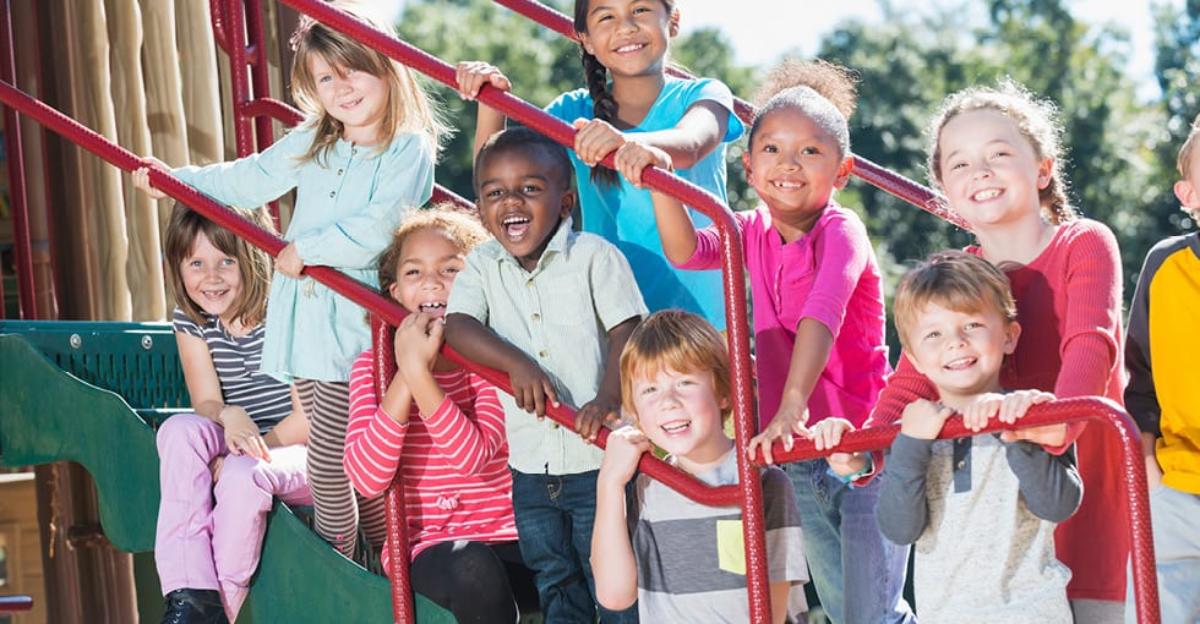Most 3 and 4 year olds enjoy the stimulation of new experiences. They are like little sponges just waiting to absorb information. Adults may interpret that to mean that any new experience in any setting provides an equally ripe opportunity for cognitive development, but early childhood educators understand that little learners need to experience a variety of activities both indoors and outdoors to learn about the world around them. Some lucky teachers rarely miss a day of getting little ones outside. And some of us look forward to warm spring days so their students can run, play and interact with nature. Not quite convinced this is very important? Consider these five important reasons to expose children to nature and prioritize time in the outdoors.
1. Daily Dose of Vitamin D and Exercise
There are so many health benefits associated with playing outdoors that it’s hard to know where to start. Children as they play outside get exposure to the sun, which in safe doses delivers high doses of Vitamin D, naturally present in very few foods. It is, however, a crucial vitamin, responsible for promoting calcium absorption and building strong bones, for modulating cell growth and immunity, and for reducing inflammation. The recommended amount of daily exercise for children 6 and older is at least an hour. Large motor activities such as using a trike, playing games with balls or running in the open spaces of a safe outdoor play area provide much needed exercise. Opportunities to stretch, dance, run, jump or skip produce endorphins and burn calories. These activities reduce stress, and guard against child obesity which is a serious problem in America. Plus, fresh air is energizing and health-boosting, and cannot be substituted by indoor air.
2. Opportunity to Practice Social Skills
Going outdoors allows you to expand the number and type of games or activities children can do, which provides opportunities to build social skills. Whether you play whole-class games such as Follow the Leader or Parachute Play, or simply let children run, climb and explore on their own, you are helping them develop important emotional skills. In group games, for instance, children learn to follow rules, take turns and deal with the disappointment of not always being the “leader” or the one to go first. In free play, they develop other skills, such as navigating peer relationships, learning to share and take turns, and inviting others to join their play.
3. Super Vision
You probably already know that you cannot turn the inside into the outside. Even if you’ve set up your indoor environment in the most developmentally appropriate way – hopefully using Early Childhood Environment Rating Scale (ECERS) or Infant/Toddler Environment Rating Scale (ITERS) – there’s still only so much you can do to transform an indoor environment. You cannot, for instance, create the significantly farther distances naturally provided by the outdoors. Beyond the luxury of space to roam, studies show that time outside actually correlates to better distance vision in children. Those that have less of an opportunity to play outside have a greater tendency toward nearsightedness, in which objects far away appear blurry. If you want to help children develop strong vision, regular play outdoors is the way to go.
4. Boosted Immunity and Allergy Protection
 Although many parents, especially those with babies, tend to fear dirt and grime, it’s actually a really good thing for kids. Believe it or not, children that spend a significant amount of time protected from mud, pets, bacteria and other pests are actually less healthy than those that experience regular exposure. While this may seem counterintuitive, the reason is that exposure actually helps children build immunity, so they are less likely to develop allergies and adverse reactions in later life. Unfortunately, this experience cannot be “made up for” later, so it’s crucial that kids get this opportunity when they’re young. While some people assume that the germs, pet hair and so on indoors is “enough” to encourage these immunities, children actually encounter much more outside, especially when playing in grass and soil. Getting kids outdoors is therefore crucial, and allowing them to get dirty is an important part of the package.
Although many parents, especially those with babies, tend to fear dirt and grime, it’s actually a really good thing for kids. Believe it or not, children that spend a significant amount of time protected from mud, pets, bacteria and other pests are actually less healthy than those that experience regular exposure. While this may seem counterintuitive, the reason is that exposure actually helps children build immunity, so they are less likely to develop allergies and adverse reactions in later life. Unfortunately, this experience cannot be “made up for” later, so it’s crucial that kids get this opportunity when they’re young. While some people assume that the germs, pet hair and so on indoors is “enough” to encourage these immunities, children actually encounter much more outside, especially when playing in grass and soil. Getting kids outdoors is therefore crucial, and allowing them to get dirty is an important part of the package.
5. Major Relaxation!
Playing outside promotes mental health as well. Studies show that spending time in nature promotes mental health and encourages relaxation. Children (and adults) who routinely spend time outdoors are shown to be less anxious, better adjusted and more able to focus on tasks. If you want to reduce distractibility and anxiety, a normal routine of extended outdoor play is a smart move. Plus, being outdoors provides children with more room to use their imaginations and invent games, which is important for their cognitive development. Kids who can design their own games and entertainment will be more creative and better suited to high paying, satisfying careers later in life.
The bottom line? It’s never too early to start promoting the healthy development of our kids. Outdoor play, seeming like a simple tactic, is actually a crucial factor in healthy development, and should be promoted wherever possible.






Leave a Reply